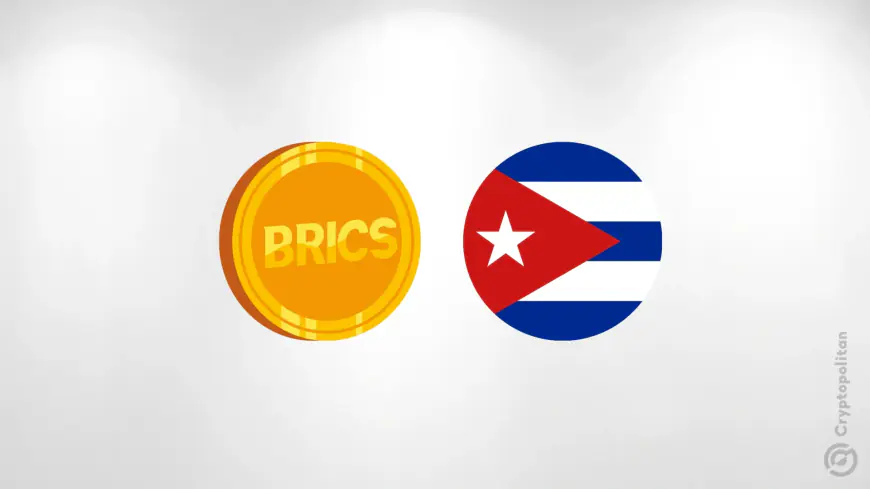Cuba wants in on the BRICS as a ‘partner country’
Cuba officially wants in on the BRICS group as a partner country. Foreign Minister Carlos Miguel Pereira announced that the country has submitted a formal request to Russia’s President Vladimir Putin, who holds the group’s presidency this year. The BRICS will hold its annual summit on October 22nd in Kazan, Russia. Ahead of the meeting, […]

Cuba officially wants in on the BRICS group as a partner country.
Foreign Minister Carlos Miguel Pereira announced that the country has submitted a formal request to Russia’s President Vladimir Putin, who holds the group’s presidency this year.
The BRICS will hold its annual summit on October 22nd in Kazan, Russia. Ahead of the meeting, Putin has said that the expansion will be a top priority conversation.
Several other countries have shown similar ambitions since the BRICS allowed in Egypt, Ethiopia, Iran, Saudi Arabia, and the United Arab Emirates earlier this year.
Countries rally for the BRICS
BRICS membership isn’t open to just anyone. It’s by invitation, and only select countries have received the offer so far, and it seems like everyone wants in.
Pakistan, for instance, is another country that has shown interest. Supported by China and Russia, Pakistan seems confident about its chances.
However, the country’s economic struggles and IMF bailouts could stand in the way of approval.
Mexico is also looking to join. Turkey has also already applied, but its ties with NATO might complicate things. Naturally.
Algeria, another candidate, is being considered for its position in Africa. The country has already been in talks about joining, given its importance in regional matters.
The BRICS group could also see Venezuela coming in, though political and economic instability could affect the chances of being approved anytime soon.
The issues with expansion
While the BRICS group is expanding, there are some challenges that could slow down or complicate the process. For example, the rivalry between member nations.
Saudi Arabia and Iran, both of which recently joined, have deep-rooted tensions that come from religious and political differences.
Egypt and Ethiopia have their own disputes too. Ethiopia’s construction of the Grand Ethiopian Renaissance Dam has led to serious conflicts with Egypt, which sees the dam as a threat to its water supply.
There’s also a gap between the economic power of different BRICS members. China is the dominant player by far, utterly overshadowing countries like Ethiopia and Egypt.
For BRICS to succeed as a united front, it will need to dedicate effort to balance the interests of both larger and smaller members.
If not, the group risks becoming a playground for its more dominant economies, leaving less powerful nations with fewer opportunities to influence decisions.
Foreign policy differences within the BRICS group also complicate things more. Some members have closer ties to the West than others.
India, for instance, is part of alliances like the Quad, which also includes the U.S., Japan, and Australia. Brazil has similar connections with Western nations.
Russia and China, meanwhile, tend to be anti-Western, especially given the former’s beef with America over those nasty sanctions.
There’s also no formal structure for decision-making within BRICS, which makes it harder for the group to reach agreements on major issues.
What's Your Reaction?







































































































